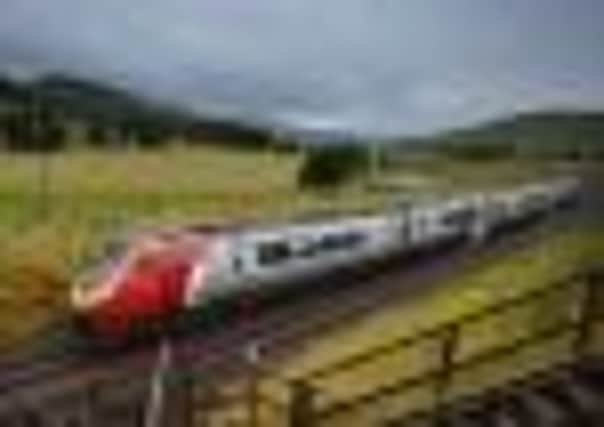UK rail set for 41% long-distance boom


But the UK will still trail France and Germany in the number of passengers who will be travelling at high-speed on long journeys, the report from technology company Amadeus predicted.
The number of UK rail passengers travelling on long-distance routes (journeys of more than 62 miles) is set to increase from 169 million in 2011 to 239 million in 2020, the report predicted.
Advertisement
Hide AdAdvertisement
Hide AdThis 70 million increase will represent 29 per cent of the total predicted increase in Europe by 2020, making the UK market accountable for the greatest single proportion of growth in long-distance passengers in Europe.
But the report added that only 93 million of the 239 million UK long-distance passengers will be high-speed (more than 124mph) travellers in 2020.
This compares with the 163 million French passengers expected to be travelling at high speed on long-distance routes by 2020, while the figure for Germany is predicted to be 118 million.
The report, which looked at 20 European countries, forecast that the UK will see long-distance passenger growth increase by an average rate of 3.9 per cent from 2011 to 2020.
It also showed that the UK, France, Germany and Russia account for about 60 per cent of rail passenger volume.
Of the 169 million UK rail users who travelled on long-distance routes in 2011, 53 million enjoyed speeds of more than 124mph.
This compared with France’s high-speed figure for 2011 of 119 million and Germany’s of 82 million.
The UK’s fastest stretch of railway is the London to Folkestone Channel Tunnel rail link, HS1, where Eurostar trains reach speeds of 186mph.
Advertisement
Hide AdAdvertisement
Hide AdHowever, the first phase of the proposed HS2 high-speed line – from London to Birmingham – is not due for completion before 2026 and is bitterly opposed by some residents and some councils.
The HS2 second phase, north of Birmingham, has a projected completion date of 2032-33. However, plans to extend the line to Scotland remain unconfirmed.
Amadeus rail director Thomas Drexler said: “Currently we can witness a global renaissance of rail travel but the next seven years will be critical for the European rail industry.”
“With increased competition, liberalisation, and the traveller of today demanding more from the travel experience than ever before, rail companies need a clear and honest view of the opportunities, challenges and threats that lie ahead.”
Bob Crow, general secretary of the RMT union, said: “Clearly, the surge in demand for rail is set to continue year on year, placing enormous strain on capacity.
“There is a real danger that simply throwing more passengers at a network that is facing 20 per cent maintenance cuts will mean more breakdowns and failures, like the broken rails, signals and overhead lines that have wrecked services in recent weeks. That shortage of staffing and maintenance capacity has to be addressed now.”